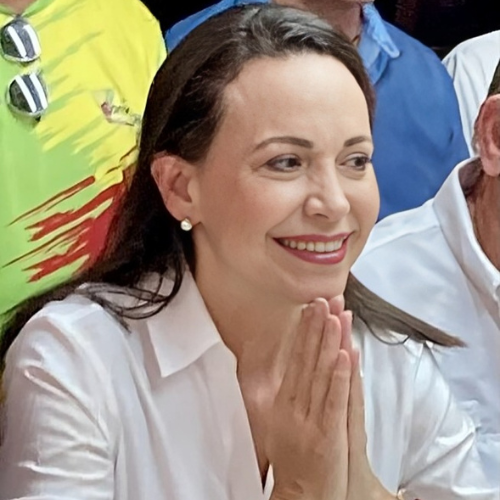Venezuela is once again at the center of international controversy. On Friday, government prosecutors announced that they are launching a treason investigation against opposition leader María Corina Machado. They accuse her of supporting U.S. sanctions against President Nicolás Maduro, whom many both inside and outside Venezuela say holds onto power unfairly.
The investigation comes after months of tension following a disputed July presidential election. The government alleges that Machado’s actions violate Venezuelan law, while her supporters see this as another attack on democracy. The situation is escalating quickly, and the stakes are high for the South American nation.
What is Machado Accused Of?
The Venezuelan prosecutor’s office claims that María Corina Machado committed “treason to the homeland.” According to their statement, Machado supported U.S. sanctions aimed at pressuring President Nicolás Maduro’s government. These sanctions include measures that restrict financial dealings with the Venezuelan government and its allies.
The prosecutor’s office says this support violates Article 128 of Venezuela’s penal code, which prohibits “conspiracy with foreign countries.” Maduro’s government insists that Machado’s alleged actions threaten the country’s stability and security.
This isn’t the first time the Maduro regime has accused opposition figures of betraying the country. However, the timing of this investigation—coming just months after Machado was disqualified from running for president—has raised suspicions among critics who see it as an attempt to silence dissent.
The U.S. Sanctions and Venezuela’s Reaction
The accusations against Machado come on the heels of a controversial move by the United States. Earlier this week, the U.S. House of Representatives passed the BOLIVAR Act. This new law would block U.S. federal agencies from doing any business with Maduro’s government or its affiliates. The bill still needs to pass the Senate and be signed by President Joe Biden before becoming law, but it has already sparked outrage in Caracas.
The Venezuelan government has called the U.S. actions a violation of the United Nations Charter, accusing Washington of interfering in its internal affairs. Maduro’s government has faced years of sanctions from the U.S., especially during Donald Trump’s presidency, when measures were tightened to cut off Venezuela’s access to foreign funds.
Venezuelan George Semerene Sentenced for Illegally Shipping Aircraft Parts
The economic situation in Venezuela is dire. Sanctions have made it harder for the government to export its primary resource—oil—and the country is suffering from severe shortages of food, medicine, and basic supplies. While the U.S. argues that sanctions are a way to pressure Maduro into holding free and fair elections, critics say they also hurt ordinary Venezuelans.
A Disputed Election and Rising Tensions
At the center of the current political crisis is Venezuela’s July 2024 presidential election. Nicolás Maduro claimed victory, but the results have been widely disputed. Many international observers say the vote was rigged, and opposition leaders have called for transparency. However, Maduro has refused to release detailed polling numbers to back up his win.
The opposition candidate, Edmundo González Urrutia, was quickly picked to run after Machado was barred from the race earlier this year. González Urrutia has since claimed he won the election by a landslide, securing 67% of the vote. Despite these claims, he fled to Spain after the government issued an arrest warrant against him.
Meanwhile, María Corina Machado has gone into hiding, fearing a similar fate. Her supporters argue that the treason investigation is just the latest tactic by Maduro to crush any political opposition. Machado has been one of Maduro’s most vocal critics, and her disqualification from running for president was seen by many as a move to eliminate competition.
The United States, for its part, has refused to recognize Maduro’s victory. In a major development, Washington announced this week that it now recognizes Edmundo González Urrutia as Venezuela’s president-elect. This decision further complicates the political turmoil and deepens the divide between the Maduro government and its opponents.
The ongoing investigation into Machado has sparked outrage among her supporters and human rights groups. Critics say Maduro’s government is using legal tools to target opponents and maintain its grip on power. With the country’s economy in crisis and political tensions at an all-time high, the situation in Venezuela remains deeply uncertain. For now, both sides are locked in a bitter struggle, with no end in sight.


